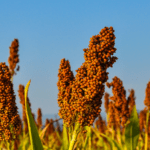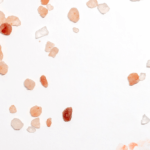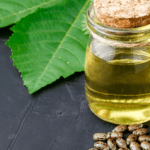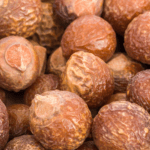SPECIAL DEALS - up to 50% OFF! Track Your Order Continue With Google

Health Benefits of Millet
Health Benefits of Millets
Millets are high in fiber content. They are rich in polyphenols, minerals, and Protein. Regular consumption of millet aids in weight loss and reduces the risk of diabetes, heart disease, and cancer. They are also rich in B vitamins which help in maintaining healthy skin, hair, and eyes. Millets are gluten-free and rich in iron, calcium, phosphorus, magnesium, and potassium. They are also a good source of antioxidants.
Major Types of millets
1. Pearl Millet
2. Finger Millet
3. Foxtail Millet
4. Proso Millet
5. Kodo Millet
6. Barnyard Millet
7. Little Millet
Nutrition in Millets
Protein – Millets are a rich source of protein, providing about 11-12% of the daily value.
Fiber – Millets are a good source of dietary fiber, providing about 5-7% of the daily value.
Vitamins – Millets contain vitamins B1, B2, B3, and B6. They also provide folate and vitamin E.
Minerals – Millets are rich in minerals such as iron, calcium, phosphorus, magnesium, and potassium.
Antioxidants – Millets contain antioxidants that help protect against free radical damage and reduce inflammation.
The health benefits of millets are listed below.
Millets for Weight Loss
Finger millet (Ragi), Foxtail millet (Kangni), and Barnyard millet (Jhangora) are the best millets for weight loss. They contain high amounts of dietary fiber which helps in reducing appetite, controlling blood sugar levels, and promoting a healthy digestive system. All three millets are also low in calories, making them ideal for those looking to lose weight. Additionally, they are rich in vitamins, minerals, and antioxidants that can help promote overall health.
Millets as Prebiotic
Not many know that millets are a good source of prebiotics. This is one of the health benefits of millets, which many overlook. Millets are a great source of prebiotics, which are non-digestible carbohydrates that feed the beneficial bacteria in our gut. This helps to create an optimal environment for digestion, absorption of nutrients, and elimination of toxins. Prebiotics can also help to reduce inflammation throughout the body and improve overall health. Millets are an excellent source of dietary fiber which helps to increase the levels of beneficial bacteria in the gut, thus promoting a healthy gut microbiome. Additionally, millets contain various bioactive compounds such as polyphenols and phytochemicals which have been shown to be beneficial for human health.
Millets for Heart Health
Millets are an excellent source of essential minerals such as magnesium, zinc, and iron. These minerals can help to lower blood pressure, reduce inflammation, and improve heart health. Additionally, millets are rich in B vitamins which can help to reduce homocysteine levels in the blood. High levels of homocysteine have been linked to an increased risk of cardiovascular disease. Millets also contain complex carbohydrates which can help to slow down the absorption of sugar into the bloodstream, thus helping to regulate blood sugar levels and reducing the risk of type 2 diabetes.
Millets for Diabetes
Millets are a great choice for people with diabetes. They are low in glycemic index and provide a slow release of energy, which helps to keep blood sugar levels stable. Millets are also high in dietary fiber, which helps to slow down digestion and the absorption of glucose into the bloodstream. Additionally, millets contain polyphenols and phytochemicals which have been shown to have anti-diabetic properties and can help to reduce insulin resistance.
Which millets control diabetes?
The millets that are most beneficial for controlling diabetes include foxtail millet, proso millet, finger millet, and Kodo millet. These millets are all low in glycemic index and high in dietary fiber. Additionally, they contain polyphenols and phytochemicals which have been linked to anti-diabetic properties.
Millets for Blood Pressure
Millets are also beneficial for people with high blood pressure. They are a good source of magnesium, which is important for maintaining healthy blood pressure levels. Additionally, millets contain potassium which helps to reduce sodium levels in the body and can help to lower blood pressure. Furthermore, millets contain antioxidants that can help to reduce inflammation and improve overall heart health.
Millets for Cancer Prevention
Millets are a great choice for people looking to reduce their risk of cancer. They are high in dietary fiber and antioxidants, which can help to protect cells from damage and reduce inflammation. Additionally, millets contain selenium which has been linked to reduced rates of certain types of cancer. Finally, millets are also a good source of lignans which have been shown to have anti-cancer properties.
Millets as weaning Food
Millets are also a great choice for weaning babies. They are easy to digest and can provide essential nutrients such as vitamin B, iron, zinc, and magnesium. Additionally, millet can help to establish healthy eating habits early on in life. Furthermore, millets are a good source of dietary fiber which can help to prevent constipation and promote regular bowel movements.
Millets for Colon Health
Millets are a great choice for people looking to maintain a healthy colon. They are high in dietary fiber which can help to reduce the risk of colon cancer and prevent constipation. Additionally, millets contain lignans which have been linked to reduced rates of colon cancer. Finally, millets are also a good source of antioxidants which can help to reduce inflammation and protect cells from damage.
Millets for Skin Health
Millets are a great choice for people looking to maintain healthy skin. They are high in essential vitamins and minerals that can help to promote skin health. Additionally, millets are a good source of dietary fiber which can help to reduce inflammation and protect cells from damage. Furthermore, millets contain lignans which have been linked to reduced rates of certain types of skin cancer.
Please check out of other millet products such as activated millet flours and sprouted millet flours.
Discover more from Dhatu
Subscribe to get the latest posts sent to your email.




